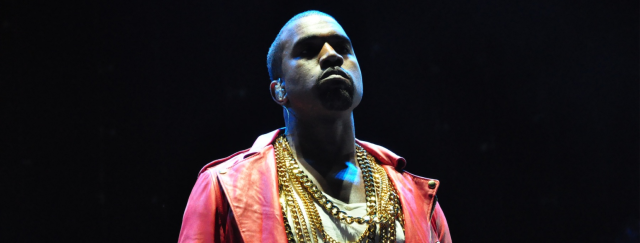
Ye has caused a recent uproar with his antisemetic and racist behavior, such as wearing a “White Lives Matter” sweater and claiming that Jewish people started cancel culture. He rides the recent waves of antisemitism and racism which ripple through the United States and abroad.
Ye’s behavior only incites more hate speech from others. We can find numerous cases of celebrities with massive followings spewing hate speech during times where support for marginalized communities is imperative. Ye’s remarks raise an important question: do celebrities’ bigotry and prejudice do more harm to marginalized people because of their amplified platforms?
I believe that the answer to that question is yes. Celebrities who spread misinformation and encourage their fans to discriminate against others need to be deplatformed.
Ye’s comments were not the only ones to recently spark outrage from the public. Just a few months ago, news articles exposed pickup artist Andrew Tate as a conman and shed light on the harmful messages he was sending to his millions of followers. The former kickboxer-turned-influencer makes content which openly degrades women and misguides those seeking wealth and fame. Tate has sparked controversy for spreading rhetoric about how women are partially responsible if they are sexually assaulted, comparing them to children or dogs as well as attacking the idea of gender equality. These comments and their impact upon male viewers were noted by news organizations, the public and even the average teacher.
A teacher who has since deleted their account on Reddit noticed their male freshmen students making misogynistic comments. These students were referencing videos made by Tate, mortifying their parents, the teacher and the female members of their class. This emphasizes my point about how harmful these messages of hate can be; the words of a celebrity have a direct impact on their viewers, resulting in irreparable damage.
Their prejudice would not be as easily spread if they were deplatformed and banned from using social media. While Tate has been banned from Instagram, Facebook, Twitter and TikTok, clips and videos using him and his likeness have been spread around social media platforms and are therefore still able to reach vulnerable audiences. There need to be more actions taken to remove the messages of these celebrities from the platform entirely.
Although Ye and Tate have been notable recent examples of this phenomenon, they aren’t the only ones infamous for spreading hateful ideas and misinformation. Former President Donald Trump has influenced many with his past remarks against many minority groups, but especially immigrants who crossed the southern borders of the country, which resulted in a large amount of hate crimes against those of Hispanic descent.
In May of 2016, two brothers in Boston beat a homeless Mexican man with a metal pole, invoking Trump’s name when speaking to police following the arrest. The two men believed the victim was an illegal immigrant and claimed that their actions were justified because the man was homeless and Hispanic.
Later that year in November, a man in Florida hit a Hispanic worker in the back of the head and allegedly said, “this is for Donald Trump.” He then continued to punch and attack the victim until another worker intervened. When Trump was still in office and active on Twitter, violence toward Hispanic people and other minorities that he targeted while campaigning increased significantly. With Trump out of the White House and him banned from Twitter, hopefully we can see a decrease in these hate crimes, as he no longer has an easy method to spread hate to a large following of people. However, damage has still been done to these vulnerable communities and the words of these celebrities will likely send ripples of bigotry for years to come.
There is a direct correlation between bigotry being spread by celebrities on social media and hate spewed towards minority groups. Hate crimes and discrimination decrease when these celebrities are prevented from speaking on the topics further and when they are banned from social media platforms. Although deplatforming can be viewed as an extreme measure that limits free speech, hate speech shouldn’t be allowed on the internet, as it has been shown to provoke crime, especially towards marginalized groups of people.
With the world’s richest man, Elon Musk, purchasing Twitter, the odds of these celebrities being removed from the platform are grim. Musk wants the social media platform to be one of free speech, and users are already testing the limits of content moderation under new leadership. Use of the N-slur has increased by nearly 500%.
An anonymous source close to Musk claims that the owner of Tesla would lift the Twitter ban on Trump and all others who have received permanent bans. This would be a major problem because Trump would once again be allowed the voice that once compelled a crowd to raid the Capitol building. It paves the way for people with suspended accounts, like Andrew Tate, to further spew racism, misogyny and antisemitism in an attempt to influence their following. This promotion of “free speech” encourages users to harass and be prejudiced towards others because of the lack of repercussions. There is a possibility that Musk’s claims could be used to stir up controversy and don’t hold any actual meaning. But for now, we must be mindful of the celebrities we look up to and their influence on our opinions.












